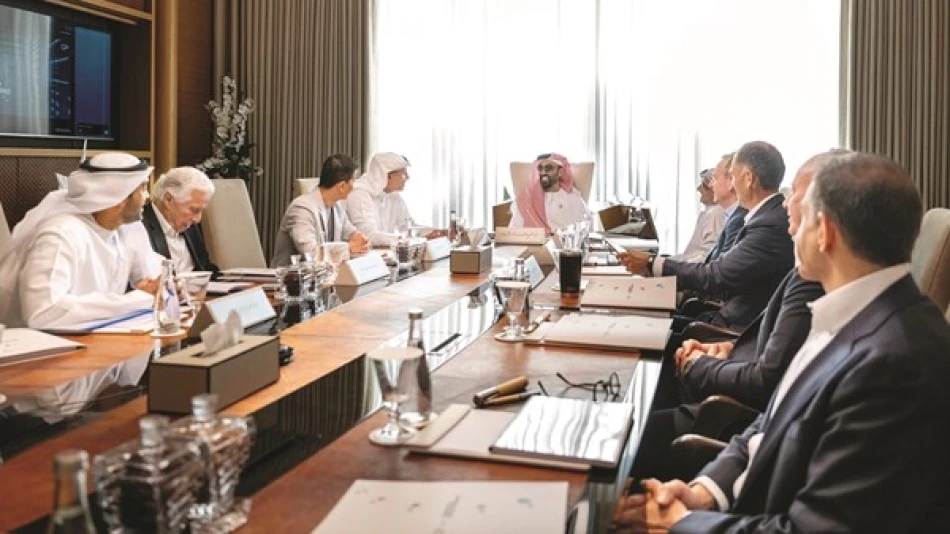
UAE's Transformative Tech and Global Partnerships: Insights from Tahnoon bin Zayed
G42, Abu Dhabi's AI giant backed by Microsoft's $15.2 billion investment, wrapped up its annual board meeting with ambitious plans to cement the UAE as a global AI powerhouse. The company is betting big on AI agent systems - digital workers that can think, learn, and collaborate across both digital and physical environments.
Sheikh Tahnoon bin Zayed Al Nahyan, Abu Dhabi's Deputy Ruler and G42's board chairman, led the meeting that reviewed the company's 2025 achievements and mapped out future strategy. The board renewed confidence in G42's management approach as the company continues building what it calls an "AI-supported resilient economy."
The Microsoft partnership remains central to G42's strategy. That massive $15.2 billion investment isn't just about money - it's positioning both companies to accelerate UAE leadership in AI and cloud infrastructure while strengthening US-UAE tech cooperation. For Microsoft, it's a gateway into Middle East markets. For the UAE, it's validation as a trusted partner in the global AI economy.
Here's where it gets interesting: G42 is focusing heavily on AI agent systems. These aren't your typical chatbots - they're sophisticated digital workers designed to operate independently across healthcare, financial services, government, and industry sectors. The company plans to expand these systems while maintaining strict safety frameworks and governance standards.
"We're building the foundation of a new intelligence-based economy," said Peng Xiao, G42's CEO. The company is developing what it calls an "Intelligence Grid" - essentially the technological backbone connecting secure data, advanced computing, and AI systems.
The timing matters for several reasons. Global competition in AI infrastructure is heating up, with countries racing to establish themselves as regional AI hubs. The UAE's geographic position between Europe, Asia, and Africa gives it natural advantages for data routing and digital services. But success depends on execution and maintaining international partnerships.
G42's board identified key priorities moving forward: strengthening the UAE's position among AI-leading nations, expanding the Intelligence Grid infrastructure, and deepening global partnerships. The company wants to build smart infrastructure that enables countries, institutions, and communities worldwide to benefit from AI advances.
The economic stakes are significant. AI infrastructure investments typically create ripple effects across multiple sectors, from attracting tech talent to enabling new business models. For the UAE, G42's success could mean transitioning from an oil-dependent economy to a knowledge-based one. For global markets, it represents another major player in the AI infrastructure space, potentially offering alternatives to existing US and Chinese platforms.
The board meeting concluded with commitments to accelerate global partnerships and continue building intelligent infrastructure. But the real test will be whether G42 can deliver on its ambitious vision while navigating complex international relationships and rapidly evolving AI regulations.
Most Viewed News

 Layla Al Mansoori
Layla Al Mansoori






